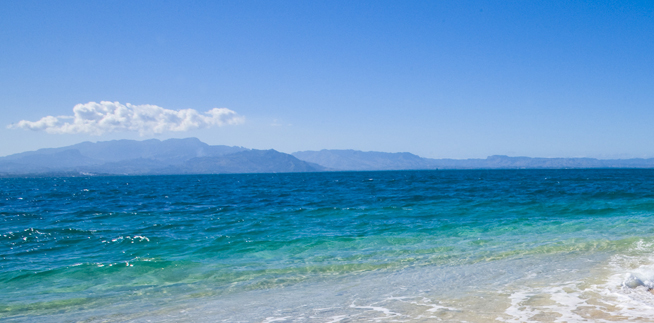Lynn Whitley

Ignorance of the ocean affects us all, as well as our personal and collective future. The Ocean is the defining feature of our planet and humans and the ocean are inextricably connected. Understanding this is key to a healthy planet and our sustainable future. The first step away from ignorance is education. Educated, environmentally literate pre-college students (K-12) are an integral part of this solution. They are our hope for the future. Providing experiential learning opportunities is a powerful way to not only really understand the science and the content of marine (ocean) systems but to be literally connected to the environment and gain a sense of purpose and an understanding of why this is important.
By literally immersing students into the marine environment through programs that involve snorkeling, kayaking, field exploration, watersheds, and data collection; not only do they learn skills that are transferable to other disciplines (observation, analyzing, synthesizing knowledge, for example) but if they also have the ability to contribute to scientific data collection such as in a citizen science project, they can clearly see the importance that each one of us makes. In field trip/experience programs educators can do this in a variety of ways. They can bring students to a marine research station, for example, as is done in southern California, or to local tide pools, wetlands, and coastal habitats to enhance their scientific understanding and also their sense of purpose and stewardship. For a student who has never snorkeled and seen the vibrant world under the ocean surface it can be a life-changing experience, kayaking along a coast line brings greater understanding of geology and ocean/land interactions as one observes the rock formations or areas impacted by the movement of the ocean. It also allows them to see human impacts such as coastal development or pollutants (plastics, trash, etc. ) in the water. Spending time identifying and counting the organisms in a tide pool brings those students up close and personal with barnacles, mussels, sea stars, urchins, anemones, and other organisms as well as providing an overview of a specific ecosystem. They learn of the resources provided by the ocean and our impact on those resources. Exploring their local watershed enhances a student’s comprehension of the connections between the land and the ocean as well as human impacts on the marine environment.
Ultimately the goal for students (and the public) is to become Ocean Literate. To be Ocean Literate, there are 7 basic principles about the ocean that every high school student (and every person) should know. It starts with: there is only One Big Ocean, this single ocean is interconnected around the planet. That in itself is significant (70% of Earth's surface is ocean), moreover it is a key to understanding that pollutants, ocean resources (fish do not obey boundaries), economies, transportation are all connected. The other basic principles include: the Ocean and life in it shaped the features of the Earth, it's a major influence on weather and climate, it makes the planet habitable, it supports a great diversity of life and ecosystems, humans and the ocean are inextricably interconnected, and it is largely unexplored. Each principle is supported by several fundamental concepts to aid in comprehending the Principle. (http://oceanliteracy.wp2.coexploration.org/ )
The basic definition of Ocean Literacy is: an understanding of the ocean's influence on you--and your influence on the ocean. Understanding these Principles and Fundamental Concepts and being able to communicate them in a meaningful way and make informed, responsible decisions regarding the ocean and its resources. based on that understanding--that is being Ocean Literate!
Ocean Literacy underlies the educational goals regarding not only marine and aquatic understanding--but also true environmental understanding to be a wiser and more contributing member of our society. We all need to learn more, understand and act on this, and not remain ignorant. The ocean is the driving force of our planet's systems; we need to understand it and make decisions accordingly for hope for a sustainable future and education is key.
Lynn Whitley is a Marine Science Educator.









